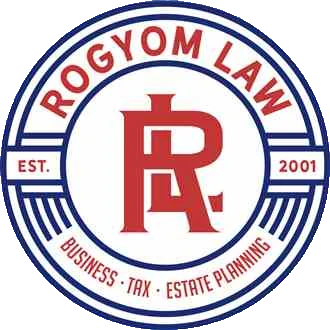The Maryland Tax Amnesty for 2009 officially ended on October 30, 2009, but if you missed the deadline you may still be able to negotiate payments and reduce your penalties for past due taxes. For instance, you may be able to use a Voluntary Disclosure Agreement. Please contact my office for more information.
Updated 5/19/2009, Following publication, the Maryland Comptroller’s Office announced early filings and payments will not be eligible for amnesty. The Comptroller’s Office is drafting an official amnesty application. Payments “under protest” for contested liabilities are eligible for amnesty if otherwise meeting the amnesty requirements. To receive notice when the Comptroller issues the amnesty application or further updates, please feel free to e-mail me.
The 2009 Maryland Tax Amnesty bill was signed into law on May 7, 2009, but the Maryland Comptroller’s Office will need to consider certain policy issues regarding its implementation. One obvious question Maryland tax attorneys and tax accountants are asking is, “What if you file prior to the Maryland Tax Amnesty period?”
The Maryland Tax Amnesty bill that went to Governor O’Malley for signing, reinstates the original bill’s half-interest allowance, having backed away from forgiving “all interest”. The final Maryland Tax Amnesty bill also shortened the Maryland Tax Amnesty period to September 1, 2009 to October 30, 2009, omitting Saturday, October 31st.
The 2009 Maryland Tax Amnesty applies to the state and local individual income tax, corporate income tax, withholding tax, sales and use tax, and admissions and amusement tax. The tax must have been due for a return due prior to December 31, 2008.
If the taxpayer meets the bill’s requirements, the taxpayer will not be subject to any civil or criminal penalties. In addition, the taxpayer will only be required to pay half the interest due prior to October 30, 2009, but the taxpayer will have full interest assessed during the collection period. If the Maryland Comptroller accepts an amnesty payment plan, the Maryland Tax Amnesty bill requires the Maryland Comptroller enter into an installment agreement whereby the taxpayer must pay the entire debt prior to December 31, 2010, a period often shorter than the taxpayer would otherwise be allowed.
There are several taxpayer classes ineligible for the Maryland Tax Amnesty. First, the amnesty does apply to taxpayers with more than 500 employees in the United States on September 1, 2009. Companies considered part of a “corporate group”, as defined by the bill, must count its corporate group’s employees. Second, taxpayers who utilized the 2001 Maryland Tax Amnesty will not get a second break.
In addition, via a later amendment, the Maryland General Assembly disallowed the amnesty for companies “eligible” to use the 2004 “Settlement Period” granted to companies with Delaware holding company corporate income tax issues following Maryland’s favorable ruling in the SYL and Crown Cork & Seal cases. While the bill disallows amnesty to this taxpayer class, contacts believe the Comptroller’s Office may will limit the class’s disallowance to corporate income taxes rather than all eligible tax types. Additional discussions indicate the Comptroller may further limit the corporate income tax disallowance solely to adjustments relating to Delaware holding companies.
So, should you wait until the Maryland Tax Amnesty period’s first day, September 1, 2009, to file your Maryland return? Many tax practitioners are likely asking this question. Given the tax amnesty is to accelerate rather than delay tax payments, the Maryland Comptroller will likely consider applying the amnesty provisions to earlier filed tax returns and payments as a matter of policy.
While a tax practitioner should never advise taxpayers to delay filing and remain out of compliance with Maryland tax laws, I am certain many Maryland tax returns are labeled “Hold Until September 1st”. So, assuming Governor O’Malley signs the bill, many prudent Maryland tax practitioners will be waiting for the Maryland Comptroller to issue guidance regarding both how and when to file Maryland Tax Amnesty returns.
Taxpayers with tax liabilities should take advantage of this rare opportunity. In particular, out-of-state businesses not currently filing in Maryland should contact an advisor to resolve any possible Maryland tax issues.
The enrolled Senate Bill 552 can be reviewed on the Maryland Assembly website.
For further information, please contact Jeff Rogyom at (410)929-4578.

